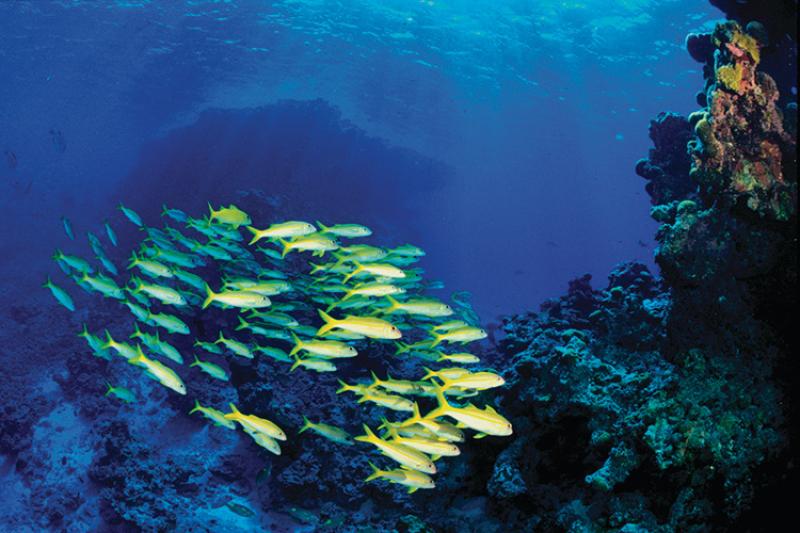Today, the National Academies of Sciences, Engineering, and Medicine released the second and final report for their study on Interventions to Increase the Resilience of Coral. The report, entitled A Decision Framework for Interventions to Increase the Persistence and Resilience of Coral, was commissioned by NOAA to help focus urgently-needed coral recovery efforts.
Corals are extremely valuable, providing about $10 trillion a year globally and over $3 billion a year domestically. They provide crucial coastal protection, habitat for fish, and other benefits, yet are severely threatened by rapidly deteriorating environmental conditions. We look forward to reviewing the National Academies’ findings and working with our partners to incorporate them in the most effective way possible.
In November, the National Academies released the first report of the two-part study: a summary of scientific research on 23 intervention strategies to make coral reefs more resilient to changing environmental conditions. (Learn more about each intervention strategy through this interactive summary table.) The second report evaluates the risks and benefits of intervention strategies, many of which are largely untested at meaningful scales. It also includes suggested priorities for future research, example frameworks to help reef managers choose and apply interventions, and a case study on how one of the decision frameworks could be used in the Caribbean.
Hundreds of millions of people depend on coral reefs for food, livelihoods, wave protection, cultural practices, and a variety of economic benefits. But the world has already lost 30 to 50 percent of its coral reefs. Without significant intervention, tropical reef ecosystems could face global extinction by the end of the century.

Traditionally, coral conservation has focused on reducing threats like overfishing and excess nutrients and on addressing damage from ship strikes and storms. These efforts remain critical. But existing approaches for managing coral reefs are not designed to preserve coral reefs as the climate changes. Unprecedented losses suggest that many coral populations may be unable to adapt to changing climate conditions quickly enough to survive.
Coral reef managers and scientists increasingly recognize that new approaches are needed to address rising ocean temperatures. Novel interventions—such as preventing coral bleaching by local shading, seeding reefs with coral larvae, and breeding stress-tolerant corals—are intended to accelerate natural evolution and buy coral reefs time to adapt while ocean conditions continue to change.
NOAA plays a significant role in guiding science, restoration, and management for coral reefs in the United States. In addition to our Coral Reef Conservation Program, we work with partners to convene world coral experts, share information among scientists and practitioners, and implement coral restoration pilot projects in the Florida Keys and in the Caribbean. We expect the National Academies findings will help direct future coral research and support reef managers as they decide on the best course of action. We will continue to address the urgent need for research and conservation to ensure the future of coral reefs.
